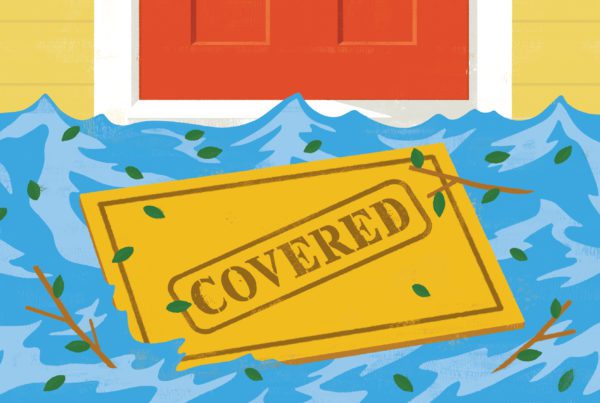
Filing Business Claims
Life tends to throw a lot of curveballs, which include the unfortunate situations where you find yourself needing to file a claim for your business. The right business insurance will help cover expensive damage and lawsuits from accidents, natural disasters, professional errors, and workers compensation claims among others.
Make sure you’re fully prepared before an incident happens and know what to do if the time comes to protect yourself and your business.
What is a Business Insurance Claim?
A business insurance claim is a formal notification sent to your insurance company to alert them to loss or damage you’ve suffered and request compensation for the loss, if it’s covered by your insurance policy. Your insurance policy will cover you for certain risks and if the loss is related to a risk covered in your policy, you should file a claim. Your insurance provider will investigate your claim once they receive it and if they approve the claim, the company will issue a payment to you or to a third-party affected by the claim, on your behalf.
Before an incident happens, it’s important to understand what you’re covered for. Policies are complex and don’t always cover everything you would expect them to, so reach out to your agent and know exactly what your policy protects you from.
How to File a Claim
Report the Claim Immediately
Avoid delays in reporting your claim to prevent additional damages and possible injuries. Both property damages and your memory will be fresher the sooner you file. Plus, claims are easier to adjust the earlier you make them. Provide the insurance representative with as much information as you can gather to speed up the process.
Gather as Much Evidence as Possible
The most important thing to remember when filing a claim with your insurance company is to have all relevant information ready to go. That means gathering as much evidence as possible to ensure you receive the highest payout possible. This information includes; who was involved, what happened, when it happened, and where it happened.
Here is information you should obtain and share with your insurance carrier when you report a claim.
Witnesses
This includes all people who saw the incident occur. Try to get their names and contact information, and if possible request that any witnesses write a statement of what they saw with a date and their signature.
Photographs
Luckily, with how common smart phones are today it’s easy to take photos immediately after an incident occurs. Try to document any damage and the location, as this can be used to help with the report and possible reimbursement.
Video Footage
Check and see if there were any security cameras that may have documented the incident as this is one of the best ways to get an accurate assessment of what happened.
Property Inventory
Make a list of the items, including the item’s model, brand, purchase date, purchase location and purchase price that have been damaged. Snap a picture of each item to include with the information. Delay discarding damaged items until you speak with your claims adjuster, as the adjuster may have to make visual inspections of the damage.
Police Reports
If the police showed up at the scene, obtain a copy of the report and give that to your insurance agency. This report will give great details that can confirm incident information.
Medical Treatment
If medical care was provided after the incident, obtain this information from the medical facility and share with your insurance agency. This should include the name of the facility where treatment was rendered, as well as their address and phone number. Your insurance carrier will reach out to them to request the medical records and provide the appropriate billing information.
Anything you can do to support what happened in the incident will ensure the claims investigation process goes as quickly as possible. Stay calm throughout the process so that you can make clear and informed decisions. Ask questions as necessary so that you clearly understand your insurance claim.
Reach out to one of our agents to discuss how you can best protect yourself and your business.





